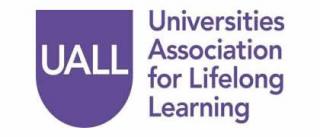The final report of the UPP foundation’s consideration of the civic role of universities has just been published. Entitled “Truly Civic: Strengthening the connection between universities and their places’ it is featured below and attached.
The report builds on an earlier progress report which focuses on Adult Education as a means of exploring the civic role of universities. This final report continues to stress the importance of Adult Education. Recommendation 7 focuses entirely on it, with the author, Lord Kerslake, writing:
We continue to believe that [Adult Education] is the greatest unaddressed challenge facing higher education and vital as we enter an era where graduate as well as non-graduate jobs may be automated. (p.13)
The recommendation calls for national government to implement the relaxation of the ELQ rule; remove the 25% intensity rule; and allow education to be accessed via funding that is not deliberately directed towards a qualification.
The principal message of the report is that universities can, and often should, make a significant impact on the success of the ‘places’ in which they are located, able to bring real benefits to their communities while also increasingly needing their active support in order to respond robustly and productively to contemporary challenges. ‘Place’ is a key word running throughout, and the report recommends that universities developed a ‘systematic and strategic approach to the civic role, based on an analysis of the needs of place’, contending that all too often they have been relatively dismissive of it.
Key themes and proposals relating to adult education are:
- The ‘new industrial revolution’ and its associated challenges, especially those of automation and artificial intelligence which are likely to negatively impact labour markets, and older adults in particular. The report states:
What most of us agree on … is that retraining of adults –including currently quite highly educated adults – is likely to be paramount.
Kerslake recognises the important role of the government’s industrial strategy as well as local industrial strategies in addressing these challenges, but observes that the funding from these is primarily directed at activities other than those ‘directed at territorially based activity of universities’. Consequently Recommendation 3, ‘Funding the civic’, proposes a new Civic University Fund and a doubling of the Strength in Places Fund.
- Widening Participation. Rooted in research which investigated what local people considered universities’ core civic responsibility, Recommendations 5 and 6 include proposals that Civic Universities’ WP plans should be more ‘locally’ based and focus on effective use of spend, in conjunction with the WP plans by the Office for Students
- The establishment of a Network for the Civic University. This would provide a means of sharing good practice, developing a benchmarking system, supporting peer learning, establishing and running a proposed peer-review system, and overseeing and supporting the development of civic agreements. These too would need to specifically consider adult learners:
While civic agreements must be decided locally, we would be surprised if adult education did not form a core plank of the majority of agreements and make up one of the biggest shifts in university behaviour.
This report is timely and very encouraging for universities and UALL members. Its strong emphasis on adult education together with concrete recommendations that, if implemented, would go a long way towards reversing the declining fortunes of adult learners in recent years, is to be much welcomed.
Summary of Recommendations (titles)
- The Civic University Agreement
- Measuring and incentivising the success of the civic university
- Funding the civic
- Spreading good civic practice
- Civic Widening Participation and Attainment
- Civic Widening Participation and Attainment
- A resurgence of adult education
- A focus on recruitment, retention and attraction of public sector staff, especially in the health sector
- Strengthening local impact alongside international excellence
- Role models as employers, procurers and brokers
- Catalysts for local economic growth
- A broadened strategy and narrative on culture, underpinned by University Community Foundations
Alice Reynolds
UALL Administrator
bridge media | Gifts for Runners
- Log in to post comments












Latest Comments